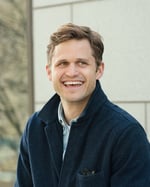On Demand Event
Deep dive on the latest research on how to predict job performance
The landscape of talent acquisition is changing quickly, and it’s crucial to stay up to date. You probably studied Hunter & Schmidt (1998) at university, but a lot has happened since then. In 2022, Dr. Paul Sackett published an extensive meta-study, reviewing years of research and presenting groundbreaking results that are reshaping how we view selection processes.
He found that some hiring methods are perhaps not as effective as we thought for predicting job performance, while others may be even more powerful. This challenges our current hiring practices and highlights the need for change. On October 21, Dr. Paul Sackett joined us in Stockholm for an interview covering his research and experience within the field.
We made sure to record the entire event – and now you can watch it for free!
Speakers
%20(1).jpg?width=150&height=150&name=2018-SackettPaul-001-(500x500)%20(1).jpg)
Dr. Paul Sackett
Professor of Psychology, University of Minnesota

Kajsa Asplund
Lic. Psychologist, Phd in Talent Management, and Lead People Science at Alva Labs

Malcom Burenstam Linder
CEO and Founder, Alva Labs
Dr. Paul Sackett
Prof. of Psychology, Univeristy of Minnesota and key figure in I/O Psychology
Dr. Paul Sackett, a psychology professor at the University of Minnesota with a Ph.D from Ohio State University, is known for his work in Industrial/Organisational Psychology. His groundbreaking research has changed how businesses use cognitive ability and personality tests in hiring. He focuses on ensuring these tests are fair and accurate.
In addition to his academic achievements, Dr. Sackett held important leadership positions.
As President of Society for Industrial and Organisational Psychology (SIOP), he gained recognition for his dedication to fair and effective personnel decision-making.
Dr. Sackett was also involved with the Human Resources Research Organisation (HumRRO) for 20 years. He led as the Chair from 2015 until he recently retired. His leadership and expertise were crucial to the organisation, further solidifying his legacy as a key figure in I/O psychology.